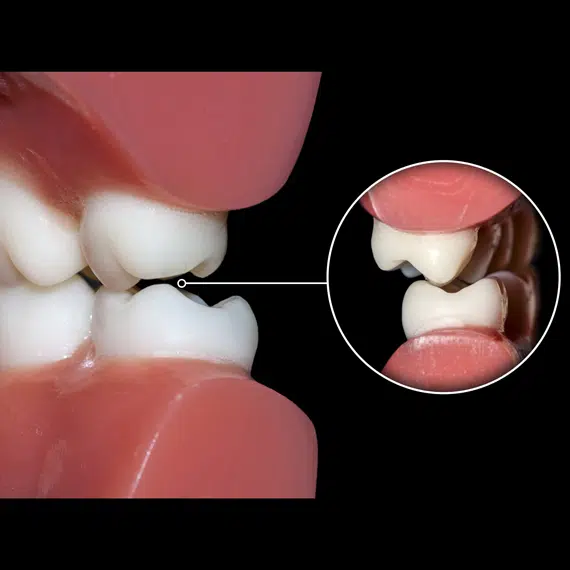
Can Bruxism Be Cured? Bruxism Treatment in Bellevue
Yes, bruxism can be cured. While a complete cure may not exist for every case, effective bruxism treatment options are available to manage the condition. Bruxism, or teeth grinding, can occur during the day or at night and may lead to jaw pain, worn teeth, or headaches. Treatment depends on the cause—whether stress, misaligned teeth, or sleep disorders. Solutions include night guards, dental corrections, stress management, and behavior therapy. Early intervention can prevent further damage and improve daily comfort. If you’re dealing with constant grinding or discomfort, exploring bruxism treatment is essential for long-term relief and dental health.
symptoms of bruxism
Bruxism can appear as the following signs and symptoms:
- Grinding of the teeth, which may be loud enough to wake up your sleeping partner
- Crushed, cracked, chipped, or loosened teeth
- Eroded tooth enamel shows deeper layers of your tooth
- Irritation or discomfort in the jaw, neck, or face
- Temporal headache
- Sleep deprivation
What are the types of bruxism?
There are two types of bruxism:
- Awake bruxism: occurs during the day. It is generally associated with emotional difficulties. Teeth grinding might occur when you are nervous, upset, or irritated.
- Sleep bruxism: occurs when you are sleeping and you may not even know. Another issue with sleep bruxism is that patients are usually unaware of how hard they are gnashing their jaw and teeth.
Causes of teeth grinding and why it is harmful?
Intense anxiety and stress are common triggers of bruxism. Moreover, teeth grinding is more likely to happen while sleeping. Bruxism can be caused by an irregular dentition or misaligned teeth. Sleep apnea might also contribute to it.
Severe bruxism can cause fracture, loosening, or loss of teeth. Severe teeth grinding can also cause teeth to be worn down to stubs. When this happens, treatments like:
- bridges,
- crowns,
- root canals,
- implants,
- partial dentures or even complete dentures may be required.
How is bruxism diagnosed?
Your dentist would most likely look for indicators of bruxism during routine dental checkups. If your dentist discovers you have bruxism, he or she may try to figure out the cause by asking you questions regarding your:
- medications,
- everyday activities, and
- sleeping patterns.
Your dentist may look for the following symptoms to determine the severity of bruxism:
- Discomfort in the muscles of your jaw
- Broken or missing teeth
- Other injuries to your teeth, jawbone, and the inside of your cheeks, generally with the use of X-rays
How is bruxism treated?
Treatment for sleep bruxism can be used to control pain and other symptoms while also reducing the intensity of jaw clenching and its possible effects.
4 procedures to treat bruxism effects
There are measures you can take to stop grinding your teeth. Based on the underlying cause of your bruxism and symptoms, some solutions may be more effective than others. The following are four methods that may be used to treat bruxism:
Mouthguards
Mouthguards protect your teeth by padding them and preventing them from crushing against one other when you sleep. They can be customized at the dentist’s office or bought over the counter (OTC). Custom-made mouthguards are more expensive than over-the-counter alternatives. When shopping for an over-the-counter mouthguard, opt for one made with soft plastic.
Crowns
New dental crowns can help relieve the symptoms of bruxism; particularly if you grind your teeth due to weak crowns or fillings. Repairing loose or defective restorations may prevent bruxism by:
- keeping the teeth in place
- lowering the possibility of dental damage
- enhancing overall oral health
Veneers
Porcelain veneers may be used to address bruxism-related tooth damage. But they’re also prone to damage due to the same grinding that caused the initial tooth damage. We recommend that you use a mouthguard after receiving your customized porcelain veneers to safeguard your teeth and veneers.
Bonding
If bruxism has caused tooth damage, dental bonding might be able to repair it. Dental bonding involves the use of a cosmetic resin that is attached to the tooth. The resin is contoured, molded, and then solidified to resemble your enamel.
Call today to schedule a consultation! (425) 998-8109
Call today to schedule a consultation!
(425) 998-8109
Frequently Asked Questions
Can Children Have Teeth Grind?
Yes. Children can have teeth grinding. The two probable triggers of bruxism in children include:
- Improperly positioned teeth.
- Uneven contact between upper and lower teeth.
How Can I Prevent Teeth Grinding?
Here are some recommendations that may help prevent bruxism:
- Alcohol and caffeine-containing meals and beverages may be avoided or limited
- Avoid gnawing on pencils, pens, or other non-food items
- Chewing gum may also be avoided since it trains your jaw muscles to clench
How Do You Stop Bruxism Immediately?
Here are a few things that may help you stop bruxism right away:
- Minimize your stress and anxiety
- Put on a mouthguard before bed
- Straighten up misaligned teeth
Can Bruxism Teeth Be Fixed?
Yes. Basic dental tooth bonding can be used to repair jagged or chipped teeth caused by teeth grinding.
How Do You Treat Bruxism Naturally?
Natural therapies and lifestyle modifications may help to alleviate the symptoms of bruxism:
- A warm cloth on your jaw will relax your smooth muscles and reduce teeth grinding
- If you’re having trouble relaxing and sleeping, warm milk is generally a wonderful option
- Massage your jaw to relieve stress in your masticatory muscles
- Lavender oil can help you sleep better by calming your anxieties
- Yoga may be beneficial in reducing the stress produced by bruxism

